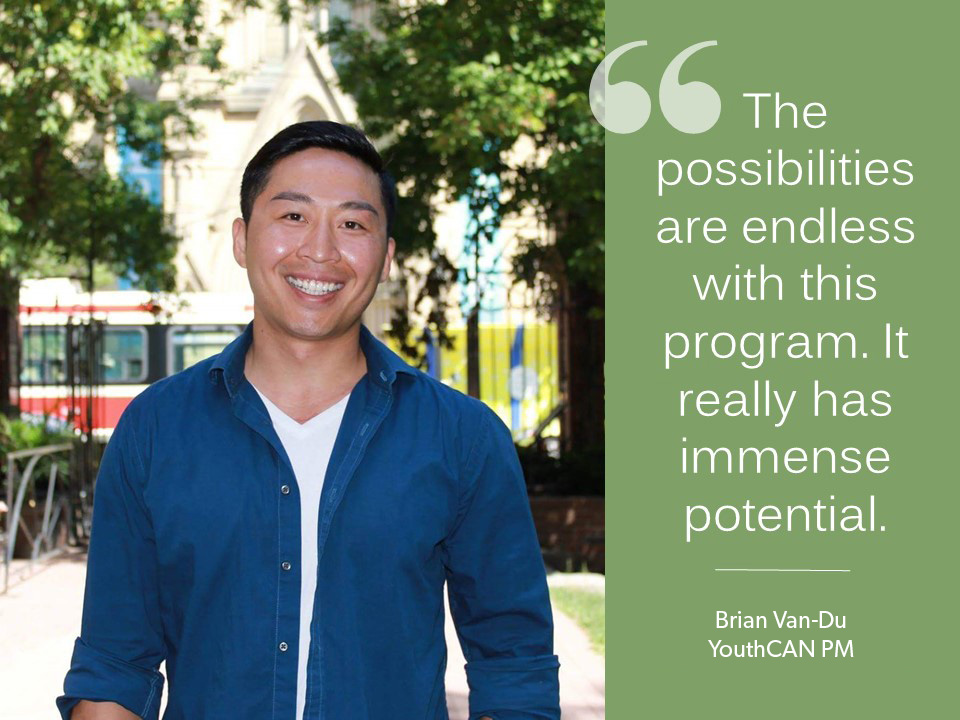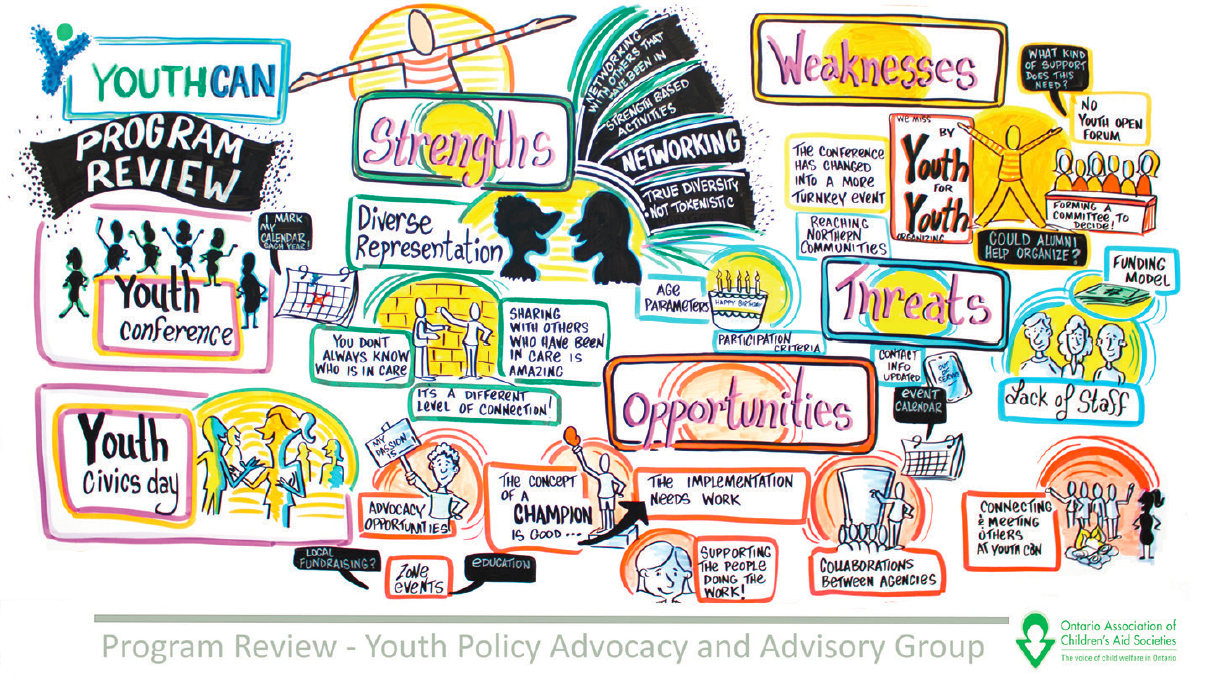YouthCAN, a program for Ontario youth in care, recently marked its 10-year anniversary. To honour the occasion, the program underwent a comprehensive review to evaluate its purpose, goals, and future priorities. We recently spoke with Brian Van-Du, YouthCAN PM, to find out about the review’s findings and where YouthCAN is headed over the next decade.

Can you start by telling us what YouthCAN is all about?
YouthCAN is a program for Ontario youth in care, and the Children’s Aid staff who work with them. It was founded in 2006 from a proposal by a former crown ward. The program operates out of the Ontario Association of Children’s Aid Societies (OACAS), which is important in ensuring it’s well supported through a youth-adult partnership model. But it’s really designed to be the unifying voice for the province’s youth in care.
The program goals are many, and include advocating on behalf of youth in care, communicating with them about issues that are important to them, increasing their input and participation in policy work and programming, and acting as a resource for CASs and like-minded organizations dedicated to serving the youth in care population. That’s where the CAN part of the name comes from – it stands for Communication, Advocacy, and Networking. Ultimately the program aims to help youth connect to each other, and to feel empowered, secure, and able to realize their full potential.
What is your connection to YouthCAN?
I’ve been the YouthCAN PM since 2012. My role is to oversee the administration of the program by supporting zones in executing their regional events and organizing the annual conference. I also act as a resource for CAS staff and youth in care for anything youth program and service related. Although I’m a former youth in care myself, I had never heard of YouthCAN before working in this role. But I can absolutely see the benefits it provides to youth in their personal and social development – this makes my job very rewarding.
What impact has YouthCAN had over the last decade?
Since YouthCAN started 10 years ago it has really evolved and become a critical part of the youth participants’ lives. Many of them report feeling a sense of belonging and connection through involvement at YouthCAN zone events and conferences. Some even identify YouthCAN as part of their family.
Over the years the program has reached over 1,000 youth through more than 200 regional events and 10 provincial conferences. The program has also been involved in some really critical advocacy initiatives, like the Ontario Child Benefit Equivalent, educational supports such as tuition aid and scholarships, and the Aftercare Benefits Initiative.
OACAS recently undertook a review of the YouthCAN program. Why was this review done? What was it hoping to achieve?
After operating for a decade, it was time for YouthCAN to take stock, re-evaluate what was working and what wasn’t, and come up with some practical suggestions for improving the program to better serve the needs of youth in care. It was also important to consider our surroundings, explore partnerships where possible, and look to other organizations who are leaders in specific areas rather than trying to reinvent the wheel ourselves here. The review is especially important because times have changed and the landscape of child welfare is very different than it was 10 years ago.
How were youth consulted in this process?
A YouthCAN Review Committee consisting of youth champions and youth in care alumni was established to help guide the review process. We also consulted with youth members to gather their qualitative feedback through focus groups, one-on-one phone and in-person interviews, and written submissions. We brought in a group of youth to OACAS’s offices one day and had the brainstorm session documented by a graphic facilitator. This was a unique way of capturing their feedback and is something we’re referring back to again and again. The youth were amazing, and so important to the review’s overall success. We couldn’t have done this without them.

Who else did you consult during the review?
We sought feedback from community stakeholders, social workers, and child and youth work professionals who work directly with youth. I can’t name them all – the full list is in the report – but some examples include Big Brothers Big Sisters, Covenant House Toronto, Children’s Aid Foundation, and Partners for Youth. Consultation with this group was helpful to gain a broader understanding of youth needs and finding connections across sectors.
We also conducted a literature review through academic and agency reports as part of the review process. This involved compiling and analyzing existing research or publications related to child welfare. It was important to reference what our community stakeholders are saying and it was interesting to capture the global and historical perspectives in our report.
Can you tell us about some of the types of recommendations that are being made in the final report?
The recommendations from this report are designed to be achievable for the YouthCAN network. Some of the recommendations are very straightforward, like revisiting the program’s goals and setting a formal vision, mission, and strategic direction. Others are more complex. They involve things like making the program more inclusive, increasing funds for youth’s participation, and better supporting youth transitioning from care. They are all valid ideas and things we’d like to do. Some will just require more time and resources.
In your opinion, what is the most significant recommendation coming out of the review?
I think one of the most significant recommendations is the suggestion to develop customized training for youth in and from care. It is important to leverage YouthCAN’s incredible youth in care network – to be more intentional and strategic with all the events and retreats we organize. We need to incorporate more learning opportunities so that young people develop the ability to advocate for themselves, understand the system, and also succeed in their personal lives. Part of this recommendation is to implement a peer-to-peer mentoring program. The idea of being able to learn from an older person who has been through the child welfare system is very appealing.
Where do you hope to see YouthCAN in another 10 years?
The possibilities are endless with this program. It really has immense potential. I could see YouthCAN evolving into a more formal organization, as an independent for-youth-by-youth organization with a board of directors. Hopefully YouthCAN can lead and implement the recommendations to improve the quality of care for youth. With the right supports and resources, YouthCAN can expand and create more events and programs for youth.
Read the full YouthCAN program review here and visit ontarioyouthcan.org to learn more.